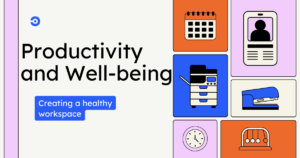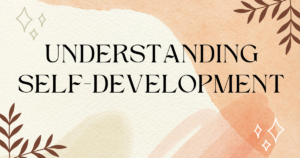Why Is Self-Development So Hard?

Introduction:
Ever wondered why self-development feels like climbing a mountain without a map? You’re not alone! While the path to personal growth is rewarding, it’s often riddled with challenges. Let’s explore why self-development can be so tough and how to navigate these obstacles.
Understanding Self-Development

Definition and Key Components
Self-development is about becoming the best version of yourself. It involves setting goals, improving skills, and cultivating a positive mindset.
But what does that really mean? It’s not just about reading self-help books or attending workshops; it’s about consistently applying what you learn to your life.
The Role of Mindset
Your mindset plays a pivotal role in your self-development journey. It’s the lens through which you view your abilities and challenges. Adopting a growth mindset, as introduced by psychologist Carol Dweck, means believing that your abilities and intelligence can be developed through effort, learning, and persistence. This perspective encourages you to embrace challenges, learn from criticism, and persist despite setbacks.
By cultivating a growth mindset, you pave the way for ongoing personal growth and greater achievements in your self-development journey.
Common Challenges in Self-Development

Lack of clear goals
One of the biggest hurdles to self-development is the lack of clear goals. Without well-defined goals, it’s like trying to hit a target you can’t see. Clear goals give you direction and purpose, helping you focus your efforts on what truly matters.
To overcome this challenge, set SMART goals—Specific, Measurable, Achievable, Relevant, and Time-bound.
-
Specific: Clearly define what you want to achieve.
-
Measurable: Ensure you can track your progress.
-
Achievable: Set realistic and attainable goals.
-
Relevant: Align your goals with your broader life objectives.
-
Time-bound: Set a deadline for your goals.
Fear of failure
Fear of failure is a significant barrier to your self-development journey. It’s that nagging voice in your head that whispers, “What if you fail?” This fear can be paralyzing, preventing you from taking the necessary steps toward growth and improvement.
When you’re afraid of failing, you might avoid taking risks or trying new things. This avoidance can lead to missed opportunities and stunted personal growth. The key to overcoming this fear is to reframe your perspective on failure. Instead of seeing it as a negative outcome, view failure as a valuable learning experience.
Procrastination and lack of discipline
We’ve all experienced the temptation to put off tasks until tomorrow, which often turns into days, weeks, or even months of delay. This habit can severely hinder progress and lead to feelings of guilt and frustration. Procrastination often stems from a fear of failure, lack of motivation, or feeling overwhelmed by the size of the task at hand.
Here are some effective strategies:
-
Set clear goals
-
Break Tasks into Smaller Steps
-
Create a schedule.
-
Eliminate distractions.
-
Reward yourself.
Psychological barriers

The Comfort Zone Dilemma
The comfort zone dilemma is a significant challenge in self-development. It refers to the tendency to stick with what’s familiar and comfortable, even when it limits personal growth. Staying in your comfort zone feels safe, but it often prevents you from reaching your full potential.
When you’re in your comfort zone, you’re not taking risks or facing new challenges. This can lead to stagnation, where you feel like you’re not making progress or growing.
To overcome the comfort zone dilemma, consider the following strategies:
-
Identify Your Comfort Zone
-
Set small, manageable challenges
-
Focus on your Growth Goals
-
Seek support and encouragement
Negative self-talk
Negative self-talk is a significant barrier to personal growth and self-development. It involves a critical and often harsh internal dialogue that undermines your confidence and self-esteem. This inner critic can make you doubt your abilities and potential, leading to a cycle of self-sabotage.
When you engage in negative self-talk, you might find yourself saying things like, “I’m not good enough,” or “I always mess things up.” These thoughts can be debilitating, affecting your motivation and overall mindset.
External influences

Societal expectations
Societal expectations can significantly impact your self-development journey. These are the standards and norms imposed by society about how you should look, behave, and what you should achieve.
For example, you might feel pressured to follow a particular career path because it’s seen as prestigious, even if it doesn’t make you happy.
Family and friends’ opinions
The opinions of family and friends can have a significant influence on your self-development journey. While their input is often well-intentioned, it can sometimes be a double-edged sword. On the one hand, their support and encouragement can be incredibly motivating. On the other hand, their expectations and judgments can create pressure and self-doubt.
Listen but filter: It’s important to listen to the advice and opinions of those close to you, but you don’t have to accept everything at face value. Consider their perspectives, but filter them through your own values and goals.
How to do the self-development process? Easy
Self-development can sometimes feel overwhelming, but it doesn’t have to be. By simplifying the process, you can make personal growth more manageable and enjoyable
The Power of Positive Affirmations
Positive affirmations are simple, powerful statements that can help reshape your mindset and boost your confidence. By repeating affirmations regularly, you can counteract negative self-talk and reinforce a positive self-image. Here’s how to use them effectively.
-
Be specific.
-
Use the Present Tense
-
Repeat regularly.
-
Believe in them.

Consistency and persistence
Consistency and persistence are key to achieving self-development goals. Here’s how to stay consistent and persistent:
-
Learn from setbacks
-
Be patient
-
Stay motivated.
-
Develop a routine.
Balancing Work, Life, and Growth
Balancing work, life, and personal growth can be challenging, but it’s essential for overall well-being. Here are some tips to help you find balance:
-
Make Time for Self-Development
-
Delegate and Say No
-
Set Boundaries
-
Prioritize Tasks
